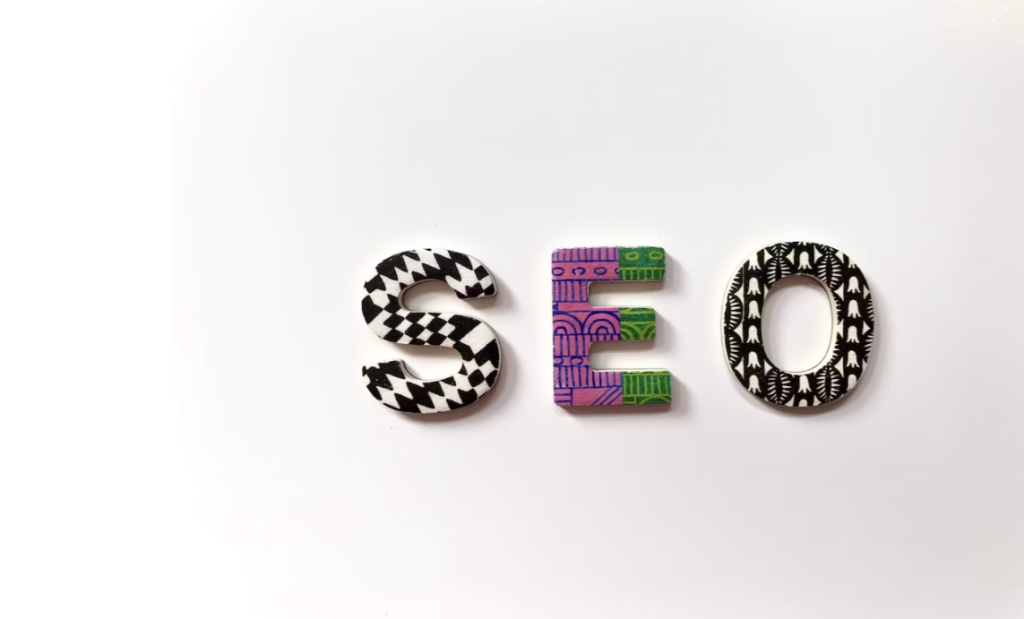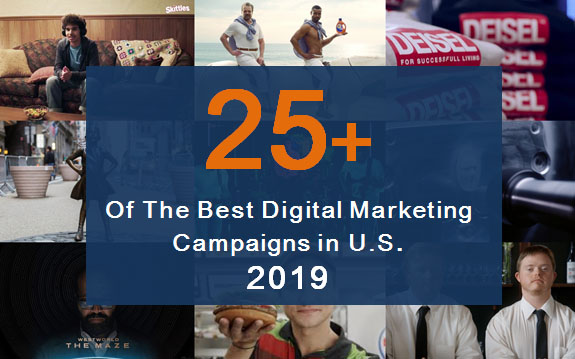Supercharge Your Marketing Efforts With AI Tools
Artificial Intelligence | May 21, 2024
In the ever-evolving landscape of marketing, the advent of Artificial Intelligence (AI) has sparked a revolution unlike any other. Gone are the days when marketing strategies were solely dependent on intuition and guesswork.
Today, AI has permeated every facet of this dynamic field, offering marketers an unprecedented level of insight and precision. Welcome to our post, “Supercharge Your Marketing Efforts with AI Tools.”
In this rapidly digitizing world, AI tools have become an essential part of modern marketing. These intelligent systems can analyze vast amounts of data, create content and imagery, predict consumer behavior, and even automate repetitive tasks. As a result, businesses can craft more effective marketing strategies, achieve better engagement and deliver personalized experiences like never before.
In this post, we will delve into the world of AI in marketing and explore how these innovative tools can supercharge your marketing efforts. Whether you’re a seasoned marketer or a beginner looking to navigate the digital sphere, this guide will provide you with the knowledge and AI marketing tools that you need to harness the power of AI.
So, let’s embark on this exciting journey together and witness how AI is reshaping the marketing landscape!
Understanding AI and Its Role in Marketing
Artificial Intelligence (AI) refers to the simulation of human intelligence processes by machines, especially computer systems. These processes include learning, reasoning, problem-solving, perception, and language understanding. In marketing, AI can significantly improve efforts by identifying trends, optimizing strategies, and offering a more personalized and engaging customer experience.
Large Language Models (LLMs), a type of AI framework, process human-like text depending on the data on which they’ve been trained. Marketers can leverage LLM frameworks to generate creative ideas and automate customer interactions through AI-powered chatbots.
These powerful tools have become indispensable in crafting effective marketing strategies, from content creation and customer service to data analysis and automation.
Let’s take a deeper look.
1. SEO Tools
AI has made significant strides in the field of Search Engine Optimization (SEO), offering tools that can drastically improve keyword research, site audits, and more. These AI-powered tools utilize machine learning algorithms to analyze vast amounts of data, predict search trends, and provide actionable marketing insights throughout, enabling businesses to optimize their digital presence and boost organic traffic.
AISEO is one such tool that stands out for its capabilities. It uses AI to analyze on-page data and provides real-time feedback to improve your content. With features like SERP Analyzer and Content Editor, it helps identify the best keywords, suggests optimal content length, and even provides structural recommendations to make your content more SEO-friendly.
Outranking.io is another powerful AI-driven marketing tool that offers a suite of features tailored toward content planning, creation, and optimization. It uses AI to analyze a topic and compare your content against top-ranking pages and provides insights into gaps in your content.
It also suggests related topics and keywords, helping you create comprehensive, SEO-optimized content.
Other notable mentions include Alli.ai and Semrush. Alli AI offers a holistic approach to SEO, providing insights into backlinks, technical SEO, and content strategy. Semrush, on the other hand, is renowned for its extensive keyword research capabilities and competitive analysis.

2. Social Media AI Tools
Social Media tools harness the power of AI to automate tasks such as posting and sentiment analysis, and even extend their capabilities to generate creative Instagram captions and bios. Brandwatch and Planable. iol are examples of such tools that empower marketers to schedule posts across multiple platforms, ensuring consistent engagement without the need for manual intervention.
These AI tools further strengthen their utility by offering insightful analytics that measure performance to guide future campaigns.
A notable mention in this context is Determ’s AI assistant, Synthia. Synthia excels at swiftly identifying critical data and suggesting the next course of action for all that data, thereby helping you save precious time and resources while shaping more informed strategies. Moreover, Determ’s AI tool provides valuable analytics to assess performance and refine future campaigns.
Other AI-powered solutions like Jasper and Quillbot add another dimension to these tools by crafting engaging Instagram captions and bios, thereby adding a touch of creativity and individuality to your social media presence.
3. Branding Tools
In the realm of branding, AI has transformed the way businesses create and present their brand image. AI-powered image generation tools can create unique, high-quality graphics for social media posts, blogs, and ads. Tools like Canvas Background Remover and Runway ML offer AI-based image editing and generation features.
Similarly, AI-driven business card generators and logo makers like Looka and Tailor Brands help create professional and personalized brand materials with ease. There are even AI tools like Generated Photos that can create realistic human faces for avatars or personas.
4. Content Creation Tools
AI-powered content creation tools can generate engaging content for various platforms. They utilize Natural Language Processing (NLP) and machine learning algorithms to create blog posts, social media updates, and even ad copies. Tools like Jasper, Articoolo, and Quill are popular examples.
They help marketers save time, increase efficiency, and maintain a consistent brand voice across all content.
5. Chatbots and Virtual Assistants
Chatbots and virtual assistants have become a staple in customer service and engagement. They use AI to interact with customers, answer queries, and provide personalized recommendations. Tools like Drift, Intercom, and Watson Assistant can automate customer interactions, providing 24/7 service and freeing up human resources for more complex tasks.
6. Customer segmentation Tools
AI enables advanced customer segmentation by analyzing a variety of data points. These tools can identify patterns and segment customers based on their behavior, preferences, and purchase history. This leads to more personalized marketing efforts. Optimizely and Dynamic Yield are examples of tools that provide AI-based customer segmentation.
7. Marketing Automation Tools
Marketing automation tools leverage AI to automate repetitive tasks such as automated email marketing campaigns, social media posting, and ad campaigns. They help improve efficiency and ensure consistency in marketing efforts. HubSpot, Marketo, and Salesforce Pardot are renowned for their robust automation features.
8. Predictive Analytic Tools
These tools use AI to analyze past data and predict future trends. These insights can be used to forecast sales, identify potential market segments, and optimize marketing campaigns. Tools like Google Analytics, Adobe Analytics, and Alteryx offer predictive analytics capabilities, helping marketers make data-driven decisions.
Each of these AI tools plays a unique role in enhancing marketing efforts. By integrating these tools, businesses can craft a holistic marketing strategy that is not only efficient and effective but also tailored to the ever-changing needs of their customers. As we continue to embrace the digital age, the importance of these AI tools in our marketing programs will continue to grow.
Benefits of Using AI Marketing Tools
The use of Artificial Intelligence (AI) in marketing has opened up new horizons for businesses worldwide, providing tools and insights to enhance marketing strategies.
Here are some key benefits of using AI tools in marketing:
- Improved User Experience: AI enables marketers to deliver the right content to the right target audience, enhancing customer satisfaction. With AI, businesses can tailor content to individual preferences, making interactions more personalized and engaging.
- Increased Efficiency: AI tools streamline marketing efforts, automating repetitive tasks and freeing up time for strategic planning. This leads to increased efficiency and productivity for ai marketing solutions.
- Clear Data Insights: AI provides clear and precise data insights, helping marketers understand customer behavior and trends. These insights drive more informed decision-making and campaign planning.
- Real-Time Personalization: AI enables real-time personalization in marketing, allowing businesses to tailor their offerings based on individual customer behavior and preferences. This leads to higher engagement and conversion rates.
- Enhanced Measurement and Analysis: AI offers enhanced measurement and analysis capabilities to marketing teams, providing real-time analytics and insights. This allows marketers to track campaign performance, identify areas of improvement, and optimize their strategies.
- Faster Content Creation: A significant percentage of marketers believe that the biggest benefit of AI is its ability to create content faster. AI tools can generate blog posts, social media updates, and ad copies, saving time and effort.
Overall, the integration of AI in a marketing strategy has become a game-changer for businesses, offering numerous benefits that enhance marketing efforts and drive business growth. As we continue to embrace digital transformation, the role of AI in digital marketing campaigns will only become more prominent.

Tips When Using AI Tools for Marketing
When using AI marketing tools, it’s essential to maximize their potential while being mindful of their limitations. Here are some tips to help you effectively use AI in your marketing efforts:
- Define Clear Objectives: Having clear goals will help you choose the right tools and measure their effectiveness.
- Data Quality and Integration: AI tools rely heavily on data. Ensure you have high-quality, relevant, and diverse data sets. Proper integration with your existing data systems is crucial for seamless functionality and more accurate outcomes.
- Monitor and Optimize: Continuously monitor the performance of your AI tools—use insights from analytics to optimize campaigns and adjust strategies.
- Stay Compliant with Regulations: Be aware of and comply with relevant regulations. Misusing customer data can lead to legal issues and damage your brand’s reputation.
- Ethical Considerations: Ensure that your marketing practices do not inadvertently propagate biases or misinformation, maintaining ethical standards in all AI-driven endeavors.
- Employee Training and Buy-in: Ensure that all relevant employees understand and embrace these tools for better implementation and results.
- Keep Abreast of AI Trends: Stay updated on the latest developments and best practices in AI marketing to refine your strategies and tools continually.
- Evaluate ROI: Regularly assess the return on investment that these AI tools provide to justify further investment in AI technologies.
Final Thoughts
The impact of Artificial Intelligence in the field of marketing is undeniable. From content creation and customer segmentation to virtual assistants, machine learning programs, and automation, AI has revolutionized how marketers strategize and operate. It’s clear that these intelligent marketing tools are not just a fleeting trend but rather a fundamental shift in the marketing landscape.
Embracing AI tools can lead to better marketing outcomes by increasing efficiency, providing data-driven customer insights for, and enhancing customer engagement. These tools offer the potential for improved results and a higher return on investment, making them an invaluable asset for any business.
So, whether you’re a seasoned marketer or a novice in the digital world, leveraging AI in your digital marketing efforts can undoubtedly give you a competitive edge.
This comprehensive guide has provided an overview of the various AI tools available for marketing and how they can enhance your strategies for improved results. We hope it has been insightful and inspires you to explore the potential of AI in transforming your marketing efforts.





